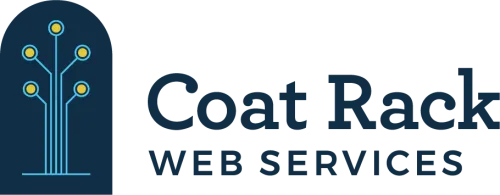December 2, 2024
Nonprofits achieve remarkable results despite limited resources, and low-code application development is revolutionizing their operations. Predicted to drive over 65% of all app development activities, this technology offers cost-effective solutions for organizing workflows, managing events, tracking donor engagement, and improving community communication.
Low-code platforms help nonprofits save time, reduce costs, and enhance their impact by enabling users with minimal technical expertise to design tailored applications.
Keep reading to discover actionable insights and real-world examples of how your nonprofit can harness this game-changing technology to maximize its mission.
Nonprofit App Development: Why It's Important
Each nonprofit organization works toward a specific mission. Achieving that mission requires tools that save time and resources. Apps are essential in organizing workflows, automating tasks, and improving communication with volunteers and donors. For example, an app can help manage event sign-ups, track donations, or send real-time updates to supporters.
Nonprofit app development embraces the ability to concentrate more on the mission and less on administrative burdens. It also helps build stronger connections with supporters, making interactions smooth and engaging. Even small nonprofits can leverage app technology to maximize their reach and work more efficiently.
Low Code vs No Code: What's the Difference?
If you are interested in nonprofit app development, knowing how these two approaches differ is essential. While both allow you to create apps without requiring advanced coding skills, they differ in functionality and flexibility.
|
Feature |
Low-Code Development |
No-Code Development |
|
Coding Requirements |
Some coding is required: It is mainly drag-and-drop but allows custom code for advanced capabilities. |
No coding needed: Purely drag-and-drop with no technical expertise required. |
|
Customization |
More customization: Offers flexibility for creating unique and tailor-made applications. |
Limited customization: Best for simple applications; becomes rigid for complex needs. |
|
Ideal Use Case |
Ideal for complex needs: Suitable for nonprofits with specific requirements or apps that need integration. |
Less complicated: Designed for beginners or small nonprofits needing quick, basic applications. |
|
Technical Knowledge |
Requires technical knowledge: Perfect for users with coding skills or those eager to learn. |
No technical knowledge is needed. It is excellent for those without a tech background. |
|
Scalability |
Highly scalable: Allows easy expansion as nonprofit needs grow. |
Limited scalability: Best for smaller-scale applications. |
|
Deployment Speed |
Moderate: Depends on complexity but offers more advanced features. |
Faster deployment: Apps can be built and launched within days or hours. |
|
Cost |
Higher cost: Reflects greater customization and scalability potential. |
Cost-effective: Ideal for nonprofits with limited budgets and straightforward needs. |
No Code Required: Quick and Simple Solutions for Nonprofits
No-code platforms allow nonprofits with tight budgets and limited technical expertise to develop simple applications without hiring developers or learning programming skills. These platforms make it straightforward to create functional apps for tasks such as managing donations, creating volunteer schedules, or updating followers in real-time.
The ease of no-code platforms allows nonprofits to act swiftly. For example, if your nonprofit has just initiated a fundraising campaign, it can build a no-code app within days rather than weeks. Requiring no code, such platforms make it easy for nonprofits to focus on their mission, not the technical aspects of things.
Low Code Benefits for Custom Nonprofit Applications
One of the most significant advantages of low-code platforms is their customizability. These tools let you start with a template already built and incorporate unique features as your nonprofit evolves.
For example, a nonprofit may begin using a simplified development app to track volunteer schedules but then expand to manage more complex data or integrate it with its donor management system. Their scalability ensures that your app will evolve with your organization.
Another essential advantage is integration. Low-code platforms make connecting your app easy with other tools, such as accounting software or marketing platforms. This seamless integration saves time and reduces errors, making them ideal for nonprofits seeking a balance between simplicity and customization.
Empower Your Nonprofit to Succeed—Streamline Operations with Coat Rack Today!
Streamlining operations and outreach are the two most essential things nonprofits must do to achieve their goals. Whether it is quick and easy no-code platforms or flexible and customizable low-code solutions, nonprofit app development empowers organizations to save time, reduce costs, and focus on their mission. Apps can transform nonprofits' operations, helping them work smarter and connect more effectively with their communities.
Coat Rack is designed to handle all the critical elements of nonprofit operations, ensuring your organization runs smoothly and effectively. Coat Rack helps you organize, save time, and produce a more significant impact with easy-to-use solutions that meet your needs.
Talk to us today about how we can support your success.



